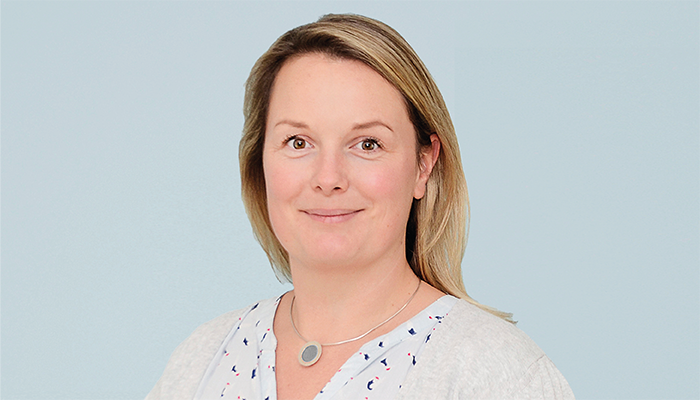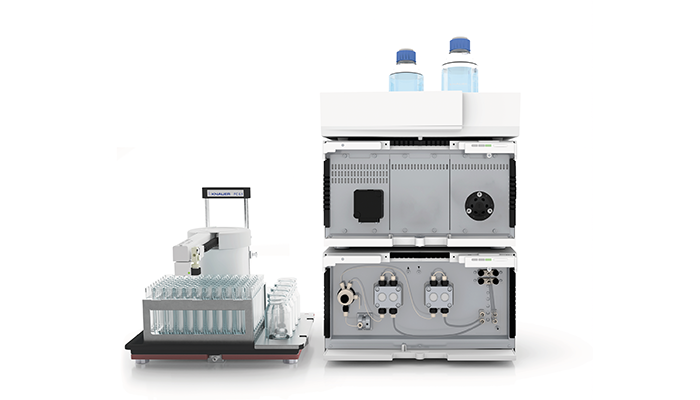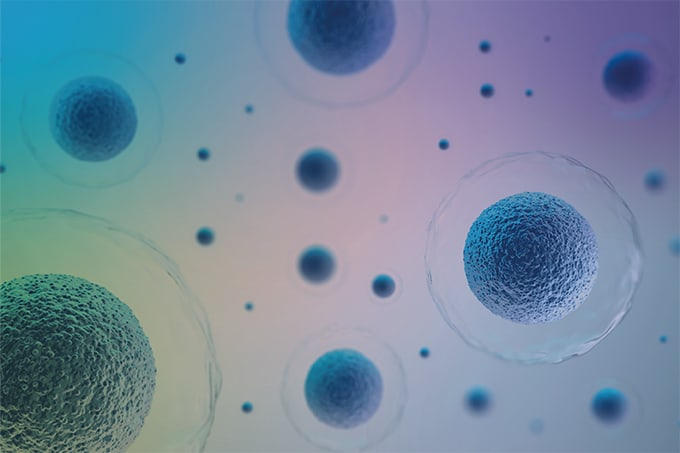
Why is peptide purification important and what are the main challenges?
Recent approvals of peptide-based drugs highlight their growing importance in therapeutic areas, including metabolic and cardiovascular diseases or oncology. Peptides, often chemically synthesized, require purification to separate desired compounds from synthesis by-products. Reversed-phase high-performance liquid chromatography (RP-HPLC) is the most widely used technique for peptide analysis and purification, with initial separation steps performed on an analytical scale before being scaled up using preparative chromatography.
A significant challenge is the high cost of method development at large scales. To address this, KNAUER develops methods on analytical-scale columns and scales them up later. This minimizes sample loss and reduces eluent usage. Linear scale-up, where column length and particle size remain constant while internal diameter and injection volume increase, ensures safe and efficient scaling.
Can you walk us through KNAUER’s approach to peptide purification?
We start with an overview gradient on an analytical system to understand the sample properties and possible impurities. Then, particle size adjustments are made to match those used in purification, overcoming pressure limitations in preparative systems. The gradient is focused around the target peak to enhance resolution and often reduce run time. A high-organic wash step removes late-eluting impurities. Injection volume is then increased to maximize throughput, and a volume overload study determines the maximum sample amount that can be purified without contamination.
One key aspect of the linear scale-up workflow is to increase the inner diameter (ID) of the column, which requires the adjustment of certain method parameters, such as flow rate and injection volume. This can be easily managed with the free KNAUER Method Converter software tool. When the analytical HPLC method parameters are entered, the software tool automatically calculates the appropriate preparative method parameters to scale up the purification process – eliminating the need for manual calculations. The purified target peak is fractionated, analyzed, and pooled based on desired purity and yield.

What are the key considerations when optimizing a preparative method for peptide purification?
Before optimizing a preparative method for peptide purification, it is important to ensure that your sample is well dissolved. Many peptides are hydrophobic, making solubility a challenge. Proper sample preparation is essential. During linear scale-up, most method development steps should be performed using the same column length and particles; this means that the particle size and modification should remain unchanged.
For further details, we recommend our recent application note, which outlines a workflow for method development and transfer to preparative systems using peptide purification as an example (1).
What trends do you see shaping the future of peptide purification?
Green chemistry and automation are two emerging trends. Efforts to reduce the environmental impact of LC processes include replacing toxic chemicals with greener alternatives; for example, using dimethyl carbonate instead of acetonitrile. These initiatives make LC analysis and purification more sustainable. KNAUER’s analytical HPLC systems, certified with the ACT label by MyGreenLab, boast the lowest Environmental Impact Factors (ACT-EIF) in the database as of July 2024.
Automation addresses the growing need for high-throughput purification. Integrating autosamplers, fraction collectors, or liquid handlers increases efficiency and reduces human error. For example, KNAUER’s Liquid Handler LH 2.1 combines sample injection and fraction collection into one instrument, enhancing throughput for high-volume labs.
What differentiates KNAUER in the field of peptide purification and method scale-up?
KNAUER is renowned for manufacturing high-end scientific instruments for compound analysis and purification. We provide customizable systems for method development, semi-preparative applications, and high-throughput purification. Our pHstable columns ensure reliable separation for even the most challenging peptides, while features like eluent heating and column temperature control in our preparative HPLC systems can enhance performance. Our systems are highly customizable and modular – and I think that really sets us apart. Finally – but just as importantly – our fantastic applications team is always on hand to help you develop, optimize, or transfer your method.
Ulrike Krop is Team Leader Applications & Academy at KNAUER Wissenschaftliche Geräte GmbH, Germany.
References
- KNAUER, “Systematic and Efficient Method Scale-Up for Peptide Purification” (2024). Available at: https://bit.ly/42ceF1R.





